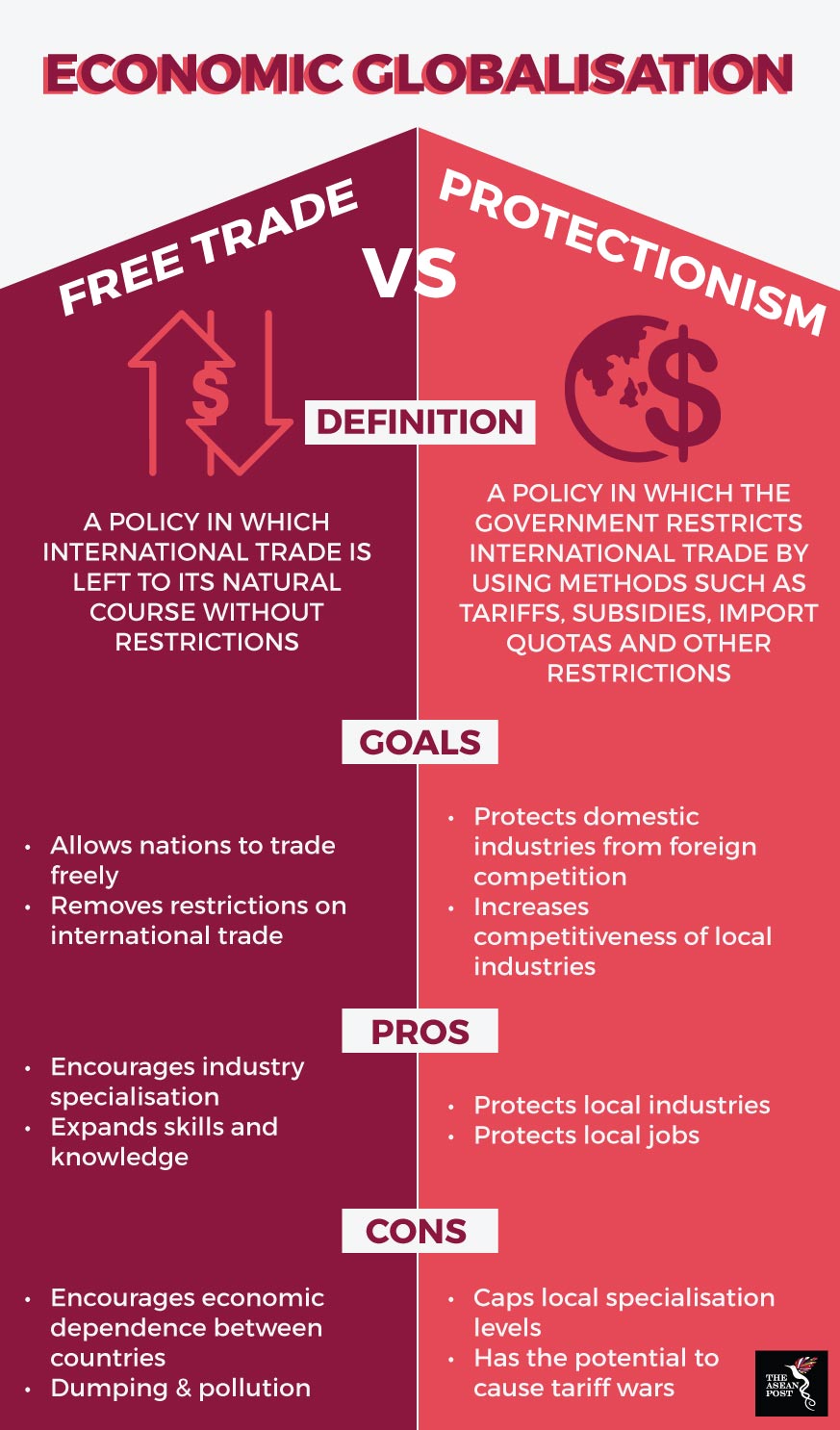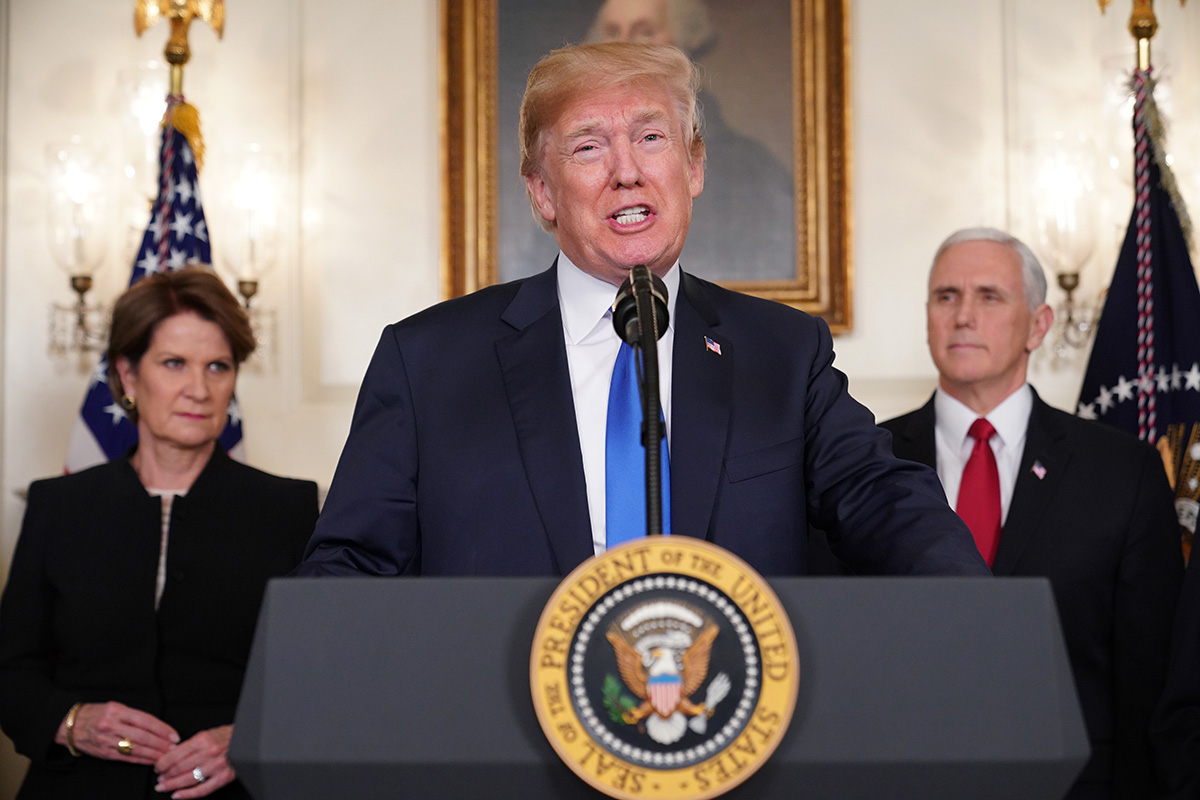United States (US) president, Donald Trump’s imposition of at least US$60 million worth of tariffs on China’s products has already prompted signs of Chinese retaliation, something that could result in a trade war between the two nations. Trump’s earlier proposals to impose a 25 percent tariff on steel and a 10 percent tariff on aluminium imports has already sparked a global uproar. Spill-over effects from a likely trade war could impact Southeast Asia too.
“Prima facie US protectionism is likely to target primarily China and Mexico among emerging markets, as they account for the largest part of the trade deficit,” Bank of America Merrill Lynch noted in March, 2018.
Yet Taiwan, Korea and Malaysia’s supply chains are also most likely to suffer from indirect impact through trade with China, it said. In terms of vulnerable sectors, Indonesia’s mining sector and the Philippine’s electronics sector were most likely to be hit through trade with China.
China has said that it is likely to impose tariffs on 128 United States products worth a combined import value of US$3 billion in response to the US tariffs on its technology and telecommunications sectors.
“They want to show that they have taken note of the US’ actions and are going to be strongly resisting, but they don’t want to be seen escalating things further,” commented Timothy Stratford, managing director at the Beijing office of US law firm, Covington & Burling.
According to the financial education website Investopedia, a trade war is instigated when one country perceives another country’s trading practices to be unfair.

Among ASEAN nations, Singapore seems the most watchful of how events have been unfolding. Ravi Menon, Singapore’s central bank chief recently said that any potential impact of a global trade war was likely to be “devastating”. Even if it should happen, however, this impact might be limited to local companies who have manufacturing and distribution facilities overseas, for one.
“Even if tariffs are not targeted at China, we have shipments that are sent globally to the various distribution centres our clients have all around the world. There’s no direct impact for now but our main concern is a possible trade war. If that happens, could we get caught in between somehow?,” queried Joyce Seow, group executive director of a contract manufacturing firm.
The impact, as such, is likely to be felt at different levels. As a whole, Singapore is arguably well-positioned to guard against any potential indirect impact to its economy. Together with the rest of ASEAN, it has strengthened its global economic position by joining regional trade agreements like the CPTPP and RCEP to gain access to wider markets while opening up its own to foreign innovation. There are always other markets to sell to, after all.
ASEAN as a whole also recently reaffirmed trade and security commitments to the European Union (EU) and Australia in separate summits held to discuss these matters. The global consensus in response to Trump’s tariffs so far is to opt for free trade over protectionism, a stance recently affirmed by Australian prime minister, Malcolm Turnbull during the recent Special Summit between ASEAN and Australia.
“We absolutely believe free trade is the key, protectionism is not a ladder you use to get out of a low growth trap, it is a shovel to dig it a lot deeper,” he noted alongside Singapore prime minister, Lee Hsien Loong. EU Trade Commissioner Cecilia Malmstrom too had earlier echoed similar sentiments regarding the prospect of an ASEAN-EU trade agreement.
“A regional agreement between us will send a strong signal to the world, a signal that the EU and ASEAN will stand shoulder-to-shoulder in support of open trade,” she said at the recently concluded ASEAN-EU Business Summit.
Free trade is generally touted as an economic positive. Opening up markets for export and import, it promotes higher economic growth, foreign direct investment, technology and knowledge transfer, among other things. US president, Donald Trump, however, has pitched US national interests in direct polarity against all these benefits. He has also pitched the national trade deficit, which he said amounted to a yearly sum of US$800 million as the reason behind his tariffs. A trade deficit implies that America is importing more than it exports. Trade tariffs however are also not the best way to solve a trade deficit, economists say. In fact, retaliatory tariffs from other countries could actually worsen a trade deficit.
“Trump’s tariffs and other protectionist measures will have little impact on the US’ trade deficit. Indeed, the tax cuts and stepped up spending programme will, by boosting demand at a time of close to full employment, cause an import surge which will make the deficit much worse. So, we will get the damage to the framework of free trade in the world economy but little benefit and probably heavy costs – e.g. steel and aluminium using industries in the US will probably suffer losses,” commented Manu Bhaskaran, CEO of independent research and advisory firm, Centennial Asia Advisors in an email interview with The ASEAN Post.
At the moment, ASEAN can still rest easy in the assurance that it has trade partners who share its free trade interests and who are likewise clinging to other nations in the face of so much chaos. Although there can be no winners in a global trade war, there can at least be fewer losses.
